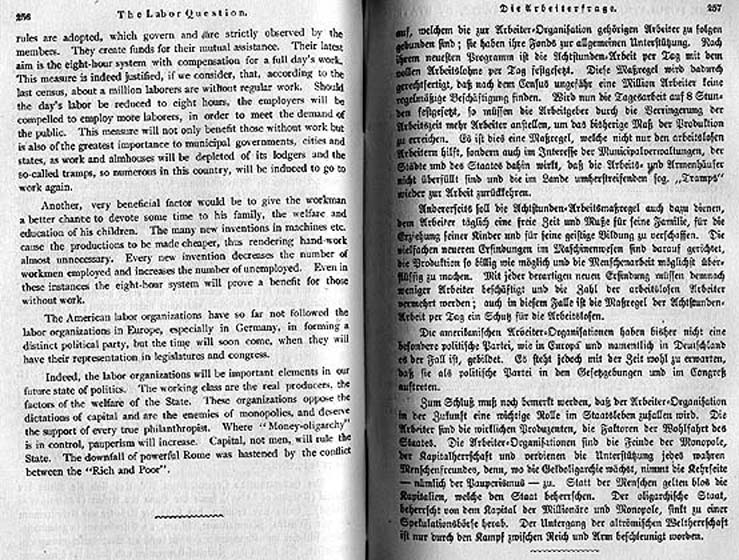
 |
 |
||
|
...rules are adopted, which govern and are strictly observed by the members. They create funds for their mutual assistance. Their latest aim is the eight-hour system with compensation for a dull day's work. This measure is indeed justified, if we consider, that, according to the last census, about a million laborers are without regular work. Should the day's labor be reduced to eight hours, the employers will be compelled to employ more laborers, in order to meet the demand of the public. This measure will not only benefit those without work but is also of the greatest importance to municipal governments, cities and states, as work and almshouses will be depleted of its lodgers and the so-called tramps, so numerous in this country, will be induced to go to work again. Another, very beneficial factor would be to give the workman a better chance to devote some time to his family, the welfare and education of his children. The many new inventions in machines etc. cause the productions to be made cheaper, thus rendering hand-work almost unnecessary. Every new invention decreases the number of workmen employed and increases the number of unemployed. Even in these instances the eight-hour system will prove a benefit for those without work. The American labor organizations have so far not followed the labor organizations in Europe, especially in Germany, in forming a distinct political party, but the time will soon come, when they will have their representation in legislatures and congress. Indeed, the labor organizations will be important elements in our future state of politics. The working class are the real producers, the factors of the welfare of the State. These organizations oppose the dictations of capital and are the enemies of monopolies, and deserve the support of every true philanthropist. Where "Money-oligarchy" is in control, pauperism will increase. Capital, not men, will rule the State. The downfall of powerful Rome was hastened by the conflict between the "Rich and Poor". |
||
|
This Internet publication has been supported by a grant from The Equitable Foundation. |